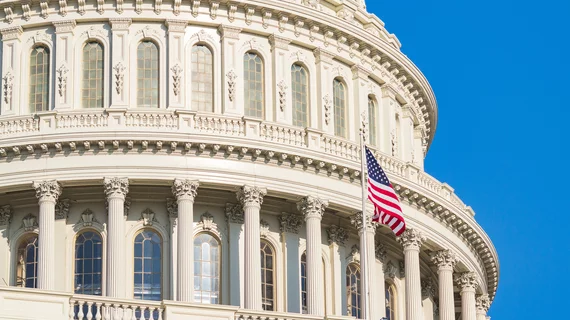Senate passes spending bill for HHS, NIH and black lung cancer screening
The U.S. Senate passed a $854 billion appropriations bill on Thursday, Aug. 23, which includes funding for HHS and an amendment filed by Sen. Mark Warner, D-Virginia, to increase federal screening programs for the detection and treatment of black lung disease in coal miners.
The Department of Defense and Labor, HHS and Education Appropriations Act of 2019 (H.R. 1657) was approved by a vote of 85-7, according to an Aug. 23 news release. The bill will allot $2 billion for the National Institutes of Health (NIH) to research Alzheimer’s disease.
The legislation is the third “minibus” package of spending bills approved by the Senate to designate funding for HHS and the Departments of Defense, Labor and Education for the 2019 fiscal year which begins Oct. 1.
The bill is also the ninth of 12 appropriations bills that need to be passed before Sept. 30 to avoid what would be the third government shutdown of the year, according to a report by The Hill.

